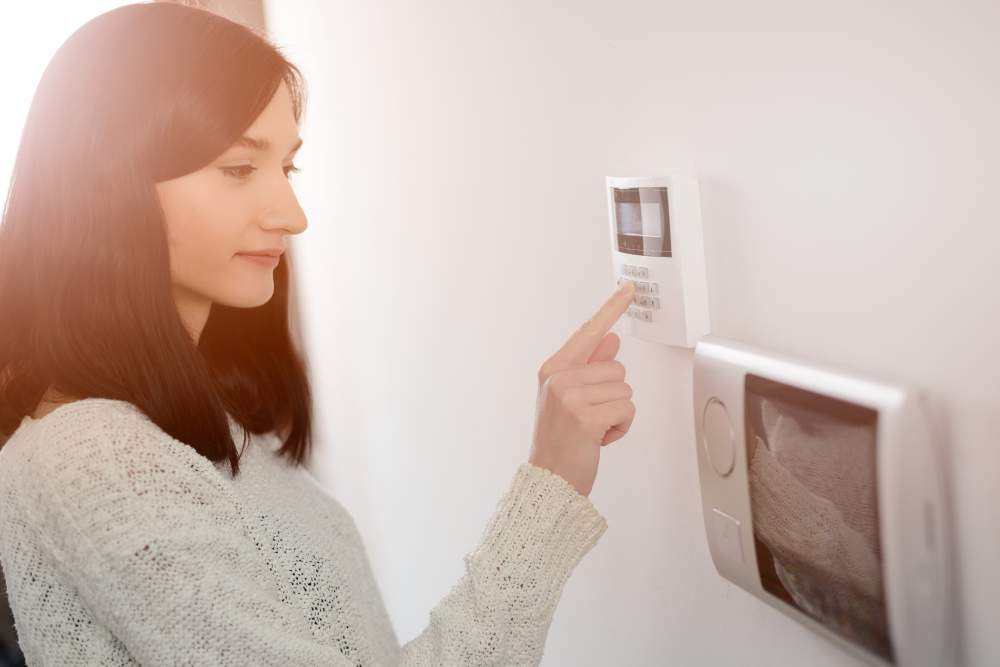
Our homes are our sanctuaries, so it can be devastating to be a victim of a burglary. Statistics show that burglary is a fairly common crime, with the FBI reporting an estimated more than 1.5 million burglaries throughout the United States in 2015, the most recent year for which numbers are available.
Although it is natural to assume higher crime areas are more at risk, even the safest neighborhoods are vulnerable. There are steps you can take to make your home less of a target for opportunistic thieves, including installing a home security system.
About home security systems
Home security systems work by reinforcing entry points around the house, such as doors and windows. Using a system of electronically networked sensors, these points are connected to a central control panel, usually in conjunction with interior motion detectors. For doors and windows, sensors are made of two parts, one which installs on the frame and the other on the moving part (the door or the window). When the alarm system is activated with windows and doors closed, the two portions complete a circuit.
Some systems have additional sensors to monitor for fire, smoke, and water damage, and some newer systems incorporate security cameras both inside and outside the dwelling. With the added protection offered by home security systems, many insurance companies now offer discounts on premiums on homeowners or renters insurance policies if a homeowner chooses to install a system.
How security systems work
The control panel is used to arm and disarm the system. If the system is armed and one of the circuits on the window or door sensors is interrupted, an alarm sounds. If it is a professionally monitored system, that alarm also notifies the alarm company that there has been a breach. The alarm company then follows a set of procedures, including contacting the homeowner or emergency contact to make sure it is not a false alarm, and then the authorities (fire or police) are called.
The rapid adoption of Wi-Fi enabled devices has allowed for an increase in what are called “non-monitored” systems. These are security systems that are set up in a home, but are not connected to an alarm company. While these types of systems do offer an additional level of home protection, they might not qualify for a discount on homeowners or renters insurance premiums. Check with your agent or carrier to find out more about what types of home security system installations might qualify for a discount.
Other steps to take
There are other steps you can take to make your home less vulnerable to thieves.
- Lock your doors
- Install motion-sensor lighting around your property
- Keep bushes and hedges located near windows trimmed—if they are too high, they provide coverage to a potential intruder while trying to break into a home
- Use deadbolts on doors
- Make sure that high-value items such as jewelry, electronics, and guns are hidden away and not easily visible when someone looks in the window
And, if you have a dog — particularly one that starts barking at the slightest noise or movement — you have not only a furry family member, but also a fairly effective burglar deterrent. Many burglars report that they avoid robbing homes with dogs.
The content on this site is offered only as a public service to the web community and does not constitute solicitation or provision of legal advice. This site should not be used as a substitute for obtaining legal advice from an insurance company or an attorney licensed or authorized to practice in your jurisdiction. You should always consult a suitably qualified attorney regarding any specific legal problem or matter. The comments and opinions expressed on this site are of the individual author and may not reflect the opinions of the insurance company or any individual attorney.







